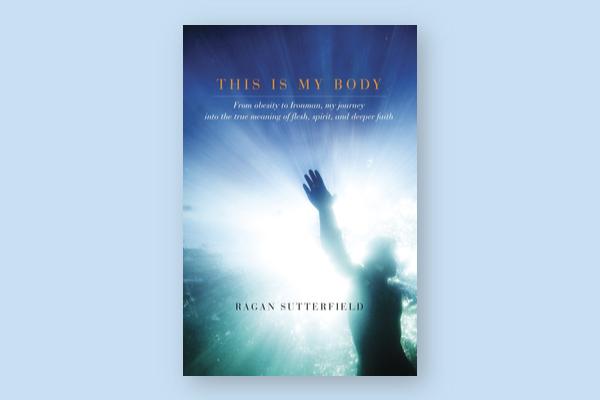WE LIVE IN an age of deep fragmentation. Like the ancient Gnostics, who believed in a deep divide between mind and body, we too are inclined to elevate the mind, or the spirit, over the body. The critic Harold Bloom once suggested that the religious practice of most Americans is “closer to ancient Gnostics than to early Christians.”
Ragan Sutterfield’s new memoir, This is My Body: From Obesity to Ironman, My Journey into the True Meaning of Flesh, Spirit, and Deeper Faith, recounts the story of his own struggles amid the fragmentation of our times. Having wrestled with being overweight since his childhood, Sutterfield eventually finds himself with a failing marriage and at his heaviest weight. He is faced with the incongruity that he is an environmentalist and farmer, doing grueling work to care for the land and creation, and yet taking poor care of his own body.
This is My Body is a compelling story of conversion, not unlike St. Augustine’s Confessions, as Sutterfield finds himself drawn out of the typical U.S. sort of Christianity that has little regard for the body and into a deeper faith in Christ, in which spirit and body are deeply interwoven. After the collapse of his first marriage, Sutterfield surrenders himself to the disciplines needed to care better for his body, specifically controlling his diet and becoming serious about exercise. From this conversion point onward, Sutterfield begins to learn and experience an incarnational faith in which our bodies cannot be taken for granted. He writes:
What if God ... became flesh and remains enfleshed? What if God not only has a heart that longs for our love but also a heart that pounds with blood? What if God has skin that drips with sweat? What if the God who offered his body as a sign of love also wants us to experience our bodies as a gift of ... love? Christians must worship a God who is all of these things because we worship a God who was made manifest to us in the human, embodied life of Jesus.
Read the Full Article

